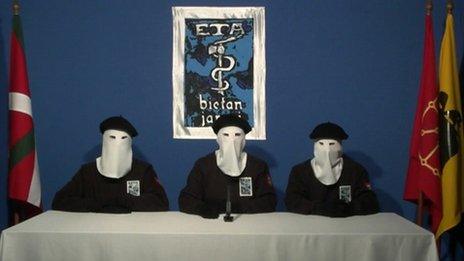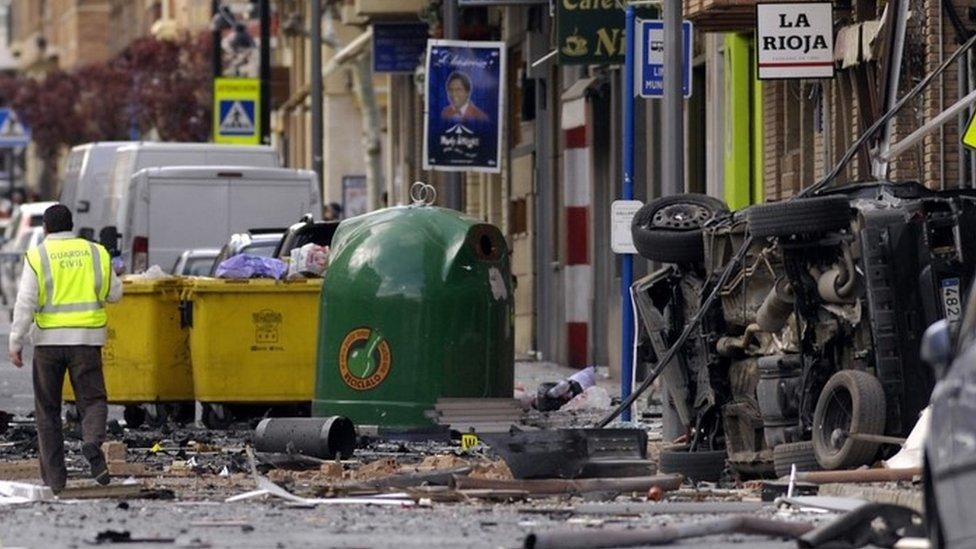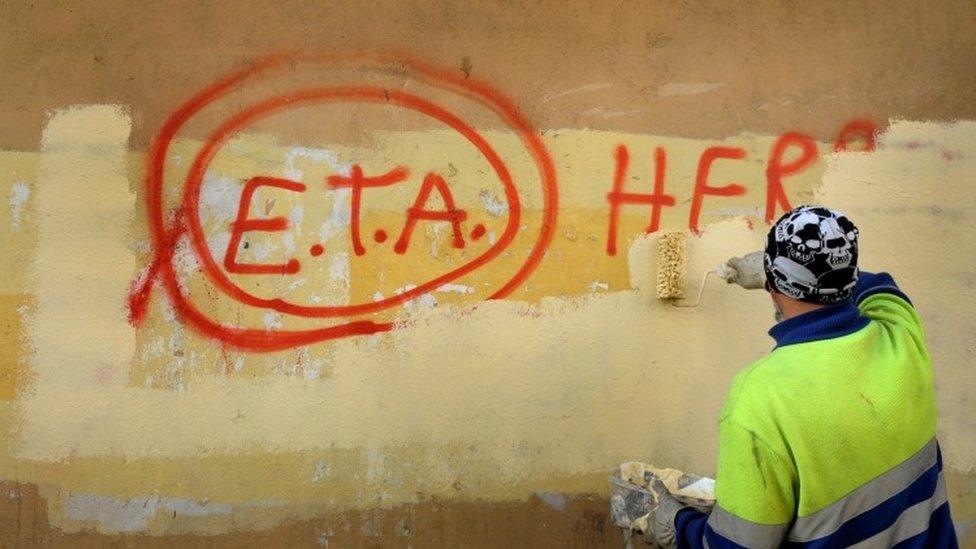Basque group Eta says armed campaign is over
- Published
At its height Eta killed more than 100 people in a single year
The Basque separatist group Eta says it has called a "definitive cessation" to its campaign of bombings and shootings.
In a statement provided to the BBC, Eta called on the Spanish and French governments to respond with "a process of direct dialogue".
The declaration, if followed through, would bring an end to Eta's campaign of violence, which has lasted more than 40 years and killed more than 800 people.
Spain's PM said the move was "a victory for democracy, law and reason".
Jose Luis Rodriguez Zapatero said after 40 years of bomb attacks and assassinations, Spain was now experiencing "legitimate satisfaction" at the victory over terror.
He said that terror should never have happened and must never return.
The new Spanish government to emerge after November's general election is to take charge of the process, said former interior minister Alfredo Perez Rubalcaba - who is running on behalf of the Socialist Party in the poll.
Mr Zapatero is not running for re-election.
Analysts say Eta has been badly weakened by a security crackdown in recent years.
The declaration follows a conference this week in the Basque Country, attended by international statesmen including former UN Secretary General Kofi Annan, and protagonists in the Northern Ireland peace process.
They called on Eta to lay down its arms.
Our correspondent, Sarah Rainsford, says the event was so carefully choreographed that this move from Eta was widely anticipated.
Ceasefire broken
In its statement, Eta said "a new political age is opening" in the Basque Country.
"We face a historic opportunity to obtain a just and democratic solution to the age-old political conflict," it said.
Eta statement: "Eta has decided on the definitive cessation of its armed activity"
"Eta has decided on the definitive cessation of its armed activity. Eta makes a call to the governments of Spain and France to open a process of direct dialogue which has as its aim the resolution of the consequences of the conflict and thus the conclusion of the armed conflict. With this historic declaration, Eta demonstrates its clear, firm and definitive purpose."
The announcement - provided to the BBC as well as to the Basque outlet Gara - is the latest step in what Eta claims is a transition to peaceful methods.
In September 2010, it announced, again to the BBC, a decision not to carry out further attacks.
In January this year, it declared a permanent and "internationally verifiable" ceasefire.
Spain's Socialist government has continued to insist that it will not negotiate on demands for Basque self-determination until Eta disbands.
The government is cautious about engaging in another peace process, after the last one failed.
It opened contacts with Eta when the group called a "permanent" ceasefire in 2006, only to break it by bombing an airport car park in Madrid, killing two people.
The group has also abandoned previous ceasefires.
Inigo Gurruchaga, of El Correo, the most prominent newspaper in the Basque Country, says Eta simply used previous truces to reorganise and rearm.
But this time appears to be different, he says.
Not only has there not been a killing for more than two years, but businessmen have stopped receiving demands for a "revolutionary tax", and there have not been street protests by Eta supporters for several months.
The group is also widely considered to have been seriously weakened, by a concerted Spanish and French crackdown.
Dozens of Eta militants, including successive leaders, have been arrested and jailed, and analysts say the group realises its days are numbered.
- Published20 October 2011

- Published20 October 2011
- Published17 October 2011
- Published16 May 2019

- Published8 April 2017
